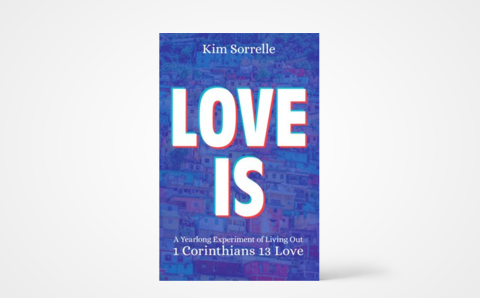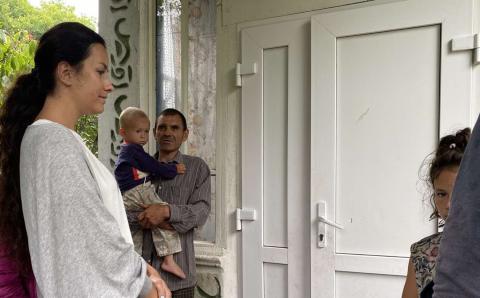As I enter my fourth decade of life, I’m learning that I struggle to accept who I am in the present moment. I get caught up in who I could or should be or what I could or should be doing.
Acceptance is something all humans crave. We long to walk into a room and have the full assurance that whoever is there will welcome us with open arms, even if we are filled with anxiety, depressed, or just having a bad day. We want to know that we aren’t a burden or “too much.” We want to be our authentic selves and not have to put on a show. As my colleague often says after venting about the woes of ministry, “Thanks for giving me the space to let my hair down.” It’s what Anne Lamott means when she calls grace the WD-40 of life. Grace for ourselves and grace for one another are what give us space to let our hair down, be ourselves, and be loved.
However, experiencing love as unconditional acceptance does not come by striving to love more, but by embracing the love God has for you. The inner acceptance we long for is found not within ourselves, but within God.
David G. Benner, emeritus distinguished professor of psychology and spirituality at Richmont Graduate University, writes in his book Sacred Companions, “Only love is capable of genuine transformation. Willpower is inadequate. Even spiritual effort is not up to the task. If we are to become great lovers, we must return again and again to the great love of the Great Lover” (34). In order to be filled with love for self, our neighbor, and God, we must go back to the source of love time and again.
My wife, Annie, and I are avid fans of Catholic priest and spiritual writer Henri Nouwen, so much so that our son’s middle name is Henri. Nouwen’s writings have been a reliable companion in the darkest and happiest times of our lives. The other day, Annie recited a prayer from Nouwen: “Accept me amid my anxiety.” Those words struck a chord deep within me. I’m someone who struggles with chronic anxiety, and my prayers are often “Relieve my anxiety” or “Make these feelings go away”—simple prayers that cry for healing from the pain. Yet Nouwen’s prayers don’t ask God to make him anyone else than who he is. He doesn’t ask for the pain to go away. Nouwen just asks God to accept him, with all the anxiety strings attached. Perhaps we could all benefit from asking God to accept us, even when we can’t accept ourselves. I wonder if I might start accepting myself in the process?
About the Author
Travis Jamieson serves as the senior pastor of Palo Alto Christian Reformed Church in Palo Alto, Calif. Previously, he served as a chaplain with older adults.








